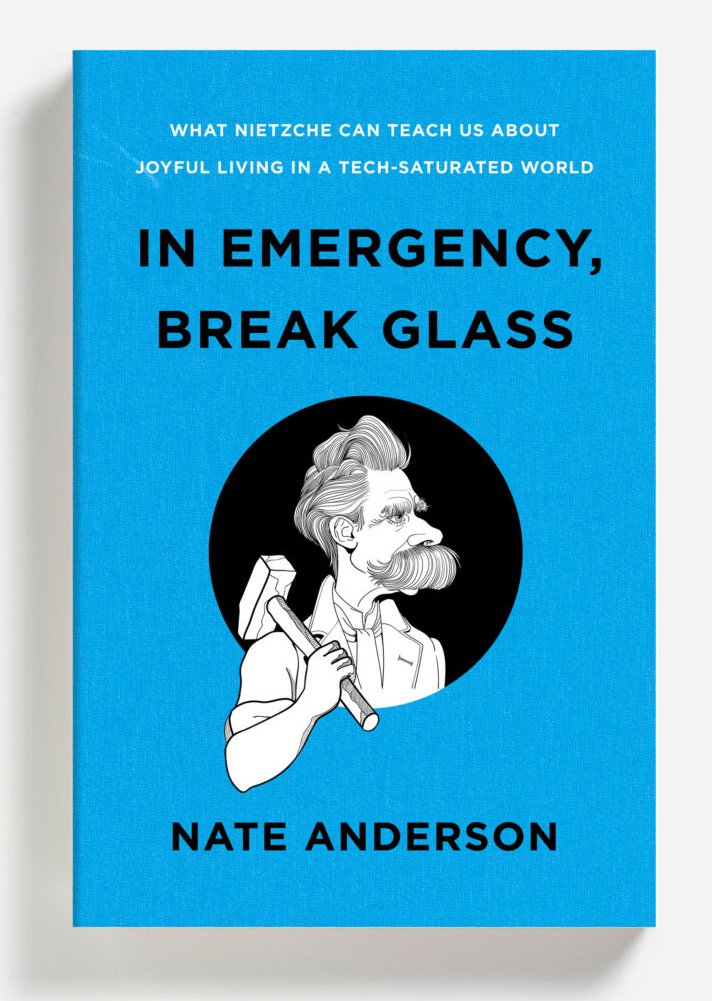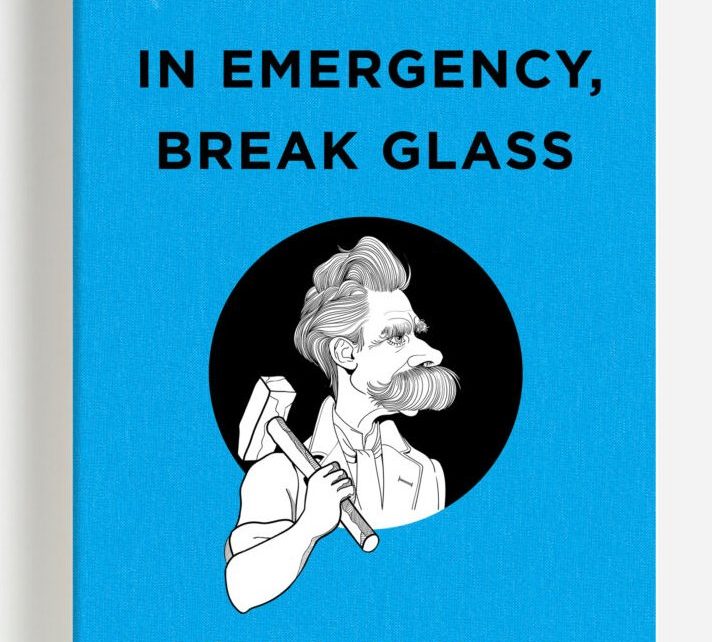
Enlarge (credit: W.W. Norton)
This is an excerpt from the new book In Emergency, Break Glass: What Nietzsche Can Teach Us About Joyful Living in a Tech-Saturated World, by Ars Technica’s Deputy Editor, Nate Anderson.
The book “adapts Friedrich Nietzsche’s passionate quest for meaning into a world overwhelmed by ‘content.’ Written long before the advent of smartphones, Nietzsche’s aphoristic philosophy advocated a fierce mastery of attention, a strict information diet, and a powerful connection to the natural world. Drawing on Nietzsche’s work, technology journalist Nate Anderson advocates for a life of goal-oriented, creative exertion as more meaningful than the ‘frictionless’ leisure often promised by our devices.” In a starred review, Publisher’s Weekly called it “a must-read for anyone overwhelmed by the Information Age.” Also, it has jokes.
No one ever accused Nietzsche of modesty. The man was convinced of his own world-shaking destiny, which must have been tough to sustain when only a few hundred people were reading his books. Still, Nietzsche offered his then-nonexistent readership tips for properly absorbing his works—especially his more “aphoristic” books. Nietzsche describes his ideal reader in the preface to Daybreak:






